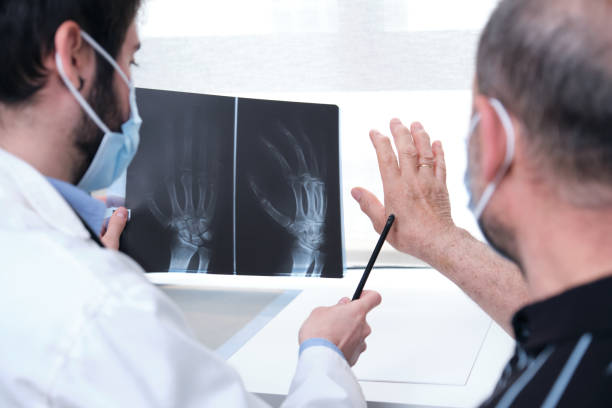We will also briefly consider some of the difficulties dealing with the NHS in its objective to proactively involve patients; Texas rheumatology information a specific method as well as seek to see what effect it might have on end results; we after that suggest additional study in the area.
NHS Activity & Long-lasting Conditions
The NHS carries out a tremendous amount of professional activity, with big quantities of clinical episodes everyday along with more than one million manuscripts being created daily. It is amazing to think that in the UK there are 15 million individuals with a with a lasting condition and a significant percentage of inpatients that have three or more lasting conditions.
It is additionally worth keeping in mind that all treatments in the Western Globe are of restricted advantage. As a matter of fact, just 50% of individuals with lasting conditions could take their medicine. We additionally know that individual education and learning as well as their active engagement in treatment decisions have an effect on outcomes as well. This is in the context of 80% of the NHS costs getting on lasting problems.
NHS Challenges
With budget plans lowering each time of economic situation it is vitally important that we examine exactly Texas rheumatology care, as well as exactly how reliable it is. In addition, we need to take every action we can to gauge the efficiency of health care treatments but even more significantly look to boost the result.
There additionally remains unfavorable feedback to the solution that the NHS could offer, an instance holding true of Ian Birrell that summarised his experiences through short articles in The Independent newspaper. Mr Birrell explains the experience of a family with a kid with a long term condition.
We also need to accept that a lot of the NHS frameworks are administrative and also slow-moving. Decisions involve several action in a complicated procedure and it is not always feasible to recognize what value is included by these action in order to review and propagate adjustment.
We are mosting likely to show you a basic device that has been developed over a course of years to look to get real time individual responses and exactly how this has actually served in terms of comprehending the person’s point of view but additionally assisting with team as well as service advancement.
A Tiny Remedy
One little solution to the scientific difficulties the NHS encounters might be to utilize real time person comments in addition to individual instruction and also debriefing. This device is based on the Picker Foundation set of questions and has actually consequently been streamlined to simply two inquiries; in the existing overview, it has a number of concerns, which can be changed with time, however likewise a cost-free message location to request further pointers.
The principle of obtaining the client’s responses or including clients in a different way is not a brand-new sensation. Institutions regularly (as part of the CQC assessment) ask 800 clients for comments every year. However, all of these steps often tend to be some means gotten rid of from real medical encounter of offered individual and an offered medical professional on an offered day.
Our Experience
There are obstacles with the real-time individual comments, or responses of any kind of type, however these are not insurmountable. There are problems of where to begin and also of enduring the person participation with time.
We would like to share some experience we have actually obtained over the last few months.
We saw that there is a demand for training, along with the need to engage and also to entail associates to show relevance. There may in some cases be facilities problems in addition to other challenges, however critically there might additionally be anxiety.
There is a level of hesitation and also hesitancy in looking to obtain patient comments with individuals being uncertain of the neutrality or value of the person feedback. There maybe might be even negative repercussions.
In the previous individual comments has been of a limited presence, however this is all transforming with the Division of Wellness, GMC, client teams, as well as the individuals themselves all settled on the significance of responses to the medical solution.
History of Real-time comments – every individual every see
The interest of among the authors began in 1995 after taking a look at client understanding as well as just how that effected on individual outcomes.
In 2005, we became more knowledgeable about the methodical demand for individual responses as well as carried out an in-and-outpatient comments form based on the Picker Foundation set of questions. Although really thorough, there were limited takers of the survey.
Consequently, with the aid of a specialized team, we created a study which primarily simply asked 2 inquiries, what was great and what was bad as well as why.
This verified to be extremely valuable and it was performed intermittently over a duration of numerous years. Subsequently, a brand-new variation of the survey was produced which looked to attend to certain issues such as communication with regards to appointments, the real experience of different elements within the facility and afterwards the subsequent letters as well as likewise a chance for the individuals to say what was good and also was not so great.


